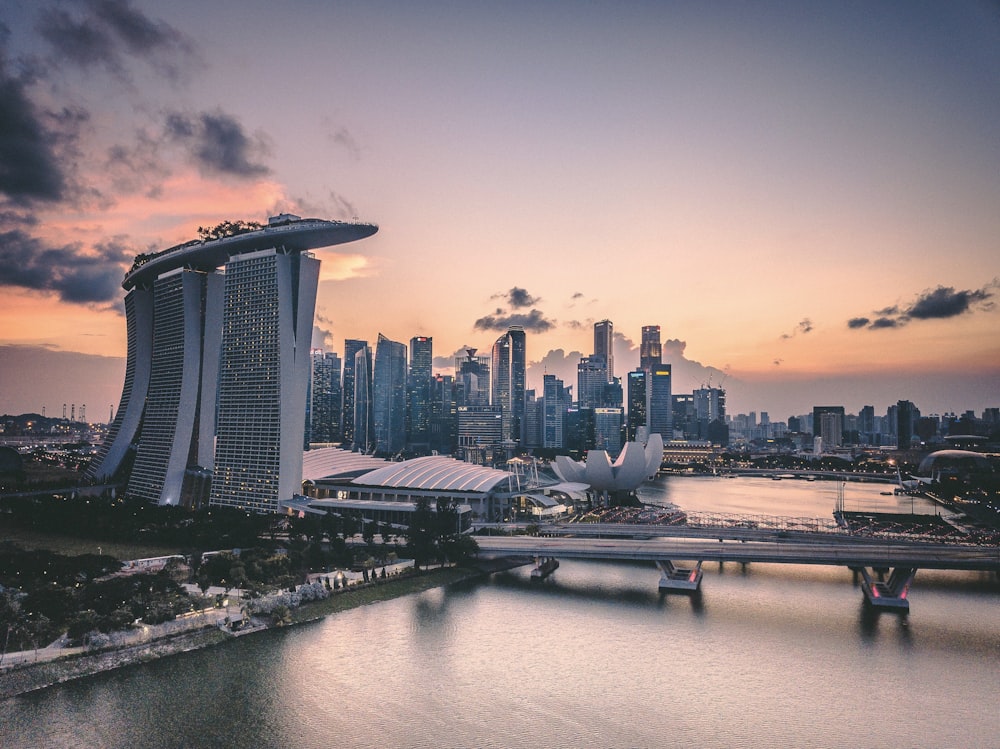Singapore’s Startup Ecosystem Overview

Singapore’s transparent and tax-friendly regime has always been at the forefront to ensure that the country stays at the top of the Ease of Doing business index. It reflects in the World Bank Ranking, where the island nation has been among the top three countries for over a decade now. Apart from providing an amicable business environment, the Singapore government has penned down policies providing grants and funding to nurture budding tech startups to add to its economic growth. These government initiatives to support startups are available to domestic entrepreneurs and foreigners who want to start their businesses in the island city-state. There are a number of schemes and grants initiated by the government to support the startup ecosystem in the country.
Government initiatives to support startups
Startup SG Founder grants: This grant is specifically designed for first-time entrepreneurs. Under this grant, the first-time entrepreneurs will receive mentorship and a startup capital grant of up to $20,000 on a co-matching arrangement. To pool in the maximum limit of the grant, which is $20,000, a startup entrepreneur must raise and commit $10,000 towards their business. This grant is provided under the startup SG scheme launched in 2017 as an instrument for entrepreneurs to seek local support.
Venture for Good Grant: This grant aims to support the social sector and startups working in the field to mitigate the social gap or need in the island city-state. New and existing social enterprises that require funds to startup or expand their existing business can apply for $300,000. The grant is initiated by the Singapore Centre for Social Enterprise (raiSE) and is backed by the Ministry of Social and Family Development. To be eligible for this grant, a startup should be focusing on addressing the social gap in mental health and caregiving or addressing employment issues by bridging the gap in this segment.
Business Improvement Fund: The BIF provides support to all Singapore registered businesses embarking on projects that improve productivity and competitiveness in the tourism sector. The fund is disbursed based on the achievement of the agreed project deliverables and milestones. Funding support varies for SME and non-SME. Successful businesses can expect to get up to 70% of qualifying cost in terms of funding support in terms of training support, input cost and others. Non-SMEs are eligible for funding support of up to 50% of the qualifying cost.
Business environment
Singapore is a country that takes “ease of doing business” very seriously. The country boasts of one of the most lenient tax regimes where personal income tax rates are as low as zero and capped at 22 percent for the residents, while non-residents are charged around 15-22 percent. Similarly, corporate income tax rates in the country are also low to provide a business-friendly environment with no dividend tax, estate duty, and capital gains tax, making it a tax haven. The decades-long lenient policies also make Singapore the hub of talented and skilled labor with high education qualifications congregating here.
Talent pool
Consistently ranked as one of the world’s most competitive, Singapore’s workforce is highly educated and skilled. More than 30 per cent of our workforce hold a university degree, with another 15 per cent having earned a diploma or professional qualification. Singapore’s bilingual education policy also means that people are proficient in English and at least one other language, such as Mandarin, Bahasa Melayu or Tamil. Singapore also attracts talent from other countries, especially in Asia owing to its position as one of the leading economies in the region. Many universities in Singapore have tie-ups with corporates to nurture future talent in areas like artificial intelligence, biotechnology, blockchain, data analytics and robotics.
Key Industries
Banking and finance, manufacturing, international trade, real estate and telecommunications are some of the most important sectors in Singapore. Key industry clusters in Singapore’s manufacturing include electronics, transport engineering, chemicals, biomedical sciences and logistics. The financial industry is the second biggest after manufacturing and Singapore is emerging as a leading finance hub globally.
Accelerators, incubators, events and networking opportunities
The country houses some of the best in sector incubators and accelerators. Following are a few notable ones assisting budding startup founders in kickstarting their journey in the island nation:
BLOCK71: TheNational University of Singapore (NUS) Enterprise initiative, BLOCK71 assists startups in collaborating and establishing a relationship with renowned corporate and government agencies. The incubator is a technology-focused ecosystem builder and global relationship builder; the incubator provides startup founder avenues for future growth in important local, regional and international markets.
PayPal Innovation Lab: This incubator is closely associated with financing early-stage and fast-growing fintech companies with difficulty obtaining capital from banks and other traditional financial institutions due to unproven technology or business model risks. The incubator, located within PayPal’s Singapore technological center, also provides initial infrastructure and access to fintech domain experts for mentoring and assisting new startups in developing new technology in the fintech sector.
HyperX hackathon-to-accelerator program: The HyperX hackathon-to-accelerator program promotes innovation towards a better and more sustainable future. HyperX is a three-phase hackathon-to-accelerator platform. It consists of the HyperHack (3-day global hackathon), HyperSpark (10 weeks pre-accelerator program) and HyperScale (inaugural accelerator for startups). It provides a platform for both innovators and entrepreneurs worldwide to get together to ideate and realize sustainable solutions and drive growth towards an inclusive world. The program is backed by Singapore’s leading investment firms, Temasek and StartupX.
Timbre +: This is an incubator that supports startups working in the food and beverages sector. The incubators’ mission is to nurture the best culinary talents of the country and hence provide their units at a subsidized cost for entrepreneurs to test their luck in the food-tech sector.
Pollinate Incubator: To support local and international talents, the Pollinate incubator is a joint effort of three polytechnics, namely Ngee Ann Poly, Singapore Poly and Temasek Poly, as well as Institute of Technical Education (ITE) that incubate and nurture the entrepreneurship spirit of polytechnic students of the college. The incubator provides an amicable environment for like-minded people working in the tech and deep tech sectors to culminate and jointly develop an ecosystem to accentuate their companies.
Get2Volume Incubator: The incubator has a presence in Columbus, Ohio, and Singapore seeks to support startups delving into the B2B startup space. It invests in B2B technology companies and helps them connect with mentors and leading corporates to grow and seek funding. Get2Volume provides the required ecosystem for companies to close business deals by providing mentoring, operational and execution capabilities.
Spaze Venture: Spaze Venture is a startup incubator that supports startups working in the information and communication technology space. The incubator helps get seed funding for startups and primarily provides hands-on mentoring and guidance to early and pre-seed stage startups.
-5.jpg?ixlib=rb-1.2.1&ixid=MnwxMjA3fDB8MHxwaG90by1wYWdlfHx8fGVufDB8fHx8&auto=format&fit=crop&w=1000&q=80)
The community in Singapore that identifies itself with the startup is massive. It increased through deep ties with big business and government intervention. It is a closely-knitted community of dreamers, hustlers and shakers, all looking to help one another out. There is a startup community, and it’s more like the original Silicon Valley than anything else one would find. As of 2022, there are around 3.8K tech startups in Singapore. Five famous Singapore startups include Grab, Acronis, Trax, Bigo Live, and Lazada. A thriving startup ecosystem has also ensured an expanding startup community in the country.
Startup Grind: Startup Grind Singapore is a vibrant chapter within the global community of passionate individuals who work in and with startups: from entrepreneurs and investors to students and established startup founders and executives, one will find a diverse mix of individuals to network with, learning from at Startup Grind Singapore. Startup Grind Singapore started in 2012 and is one of the oldest chapters in Asia.
Action Community for Entrepreneurship (ACE): ACE is the key trade association, representing startups with more than 1,500 members. Since 2014, it operates as a private sector-led, non-profit organization and works closely with startups and the government. ACE aims to promote entrepreneurship, catalyze new growth opportunities, scale startups and build champion enterprises.
Singapore Startup Club: StartUp Club is a global startup community built by entrepreneurs for entrepreneurs. The Singapore chapter of StartUp Club understands the trials and tribulations one goes through as an entrepreneur. It also understands that startup ecosystems are only as strong as the connections and sharing of information. As starting-up becomes a global yet local endeavor – the group also knows the value of creating international relationships, not only local.
Innovfest Unbound: Innovfest Unbound is the largest startup innovation event in Asia. It is the award-winning meeting point for the international industry, dedicated to helping build digital economies and turbocharging the ASEAN innovation ecosystem. Innovfest Unbound has grown exponentially in the past five years, with the 2019 edition seeing 500 exhibitors, 18,500 delegates, 5,000 startups and 40 percent international visitors.
Asia Tech x Singapore: Asia Tech x Singapore (ATxSG) is Asia’s flagship tech event where technology intersects with society and the digital economy. ATxSG enables participants to network and track the latest tech trends, challenges and opportunities.
-
Singapore features global R&D labs for leading Fortune 500 companies.
-
Over 200 accelerators and incubators, over 420 VC firms and Angel Networks
-
Singapore is recognised as a global leader in high-value manufacturing and is the world’s fourth largest exporter of high-tech products.
-
Transparent and streamlined business setup and ranked highly in ease of doing business.
-
Excellent transport and digital infrastructure
Interested in Singapore’s Startup Ecosystem?
Leave your details below and we will get in touch with you on the benefits of relocating and/or investing in Singapore:


